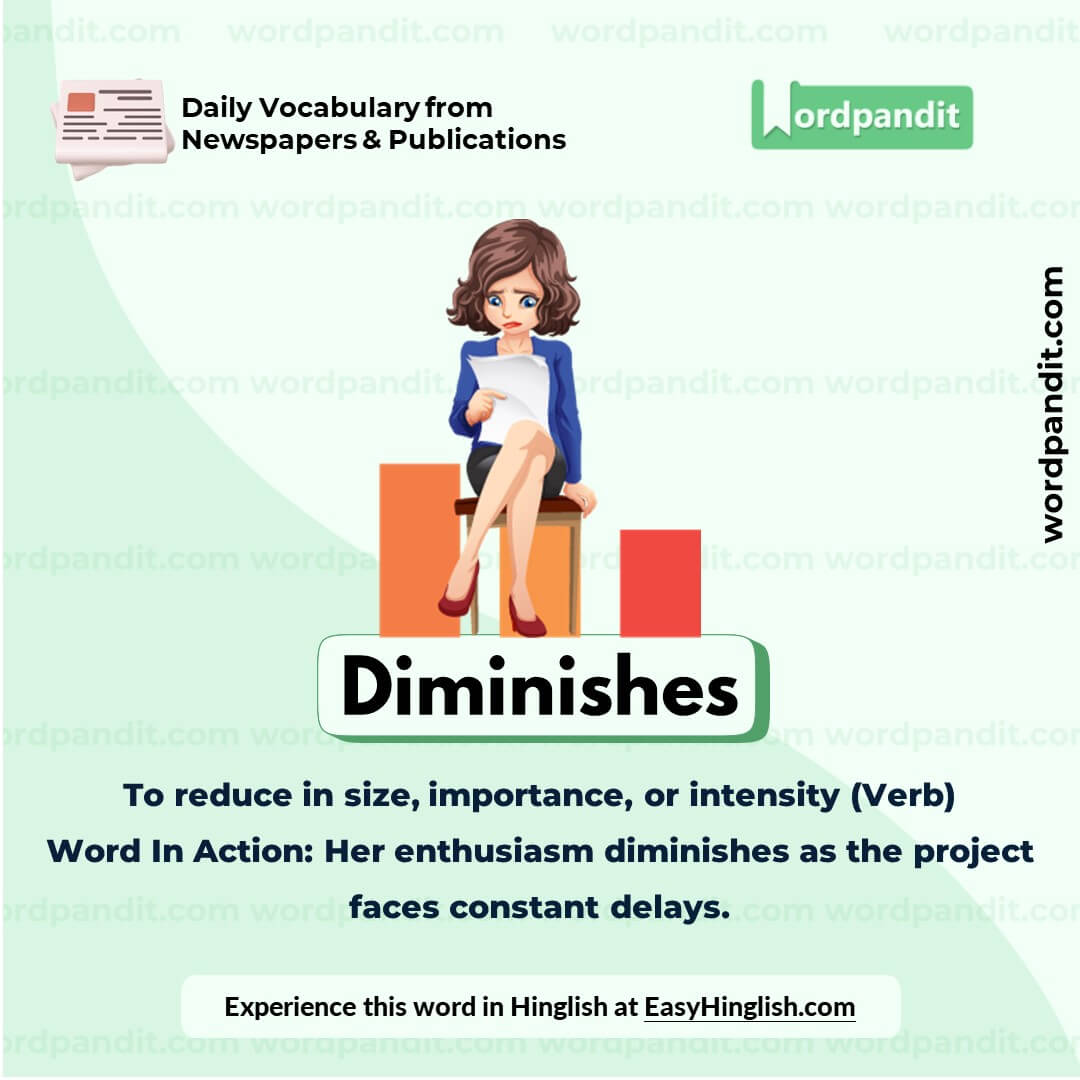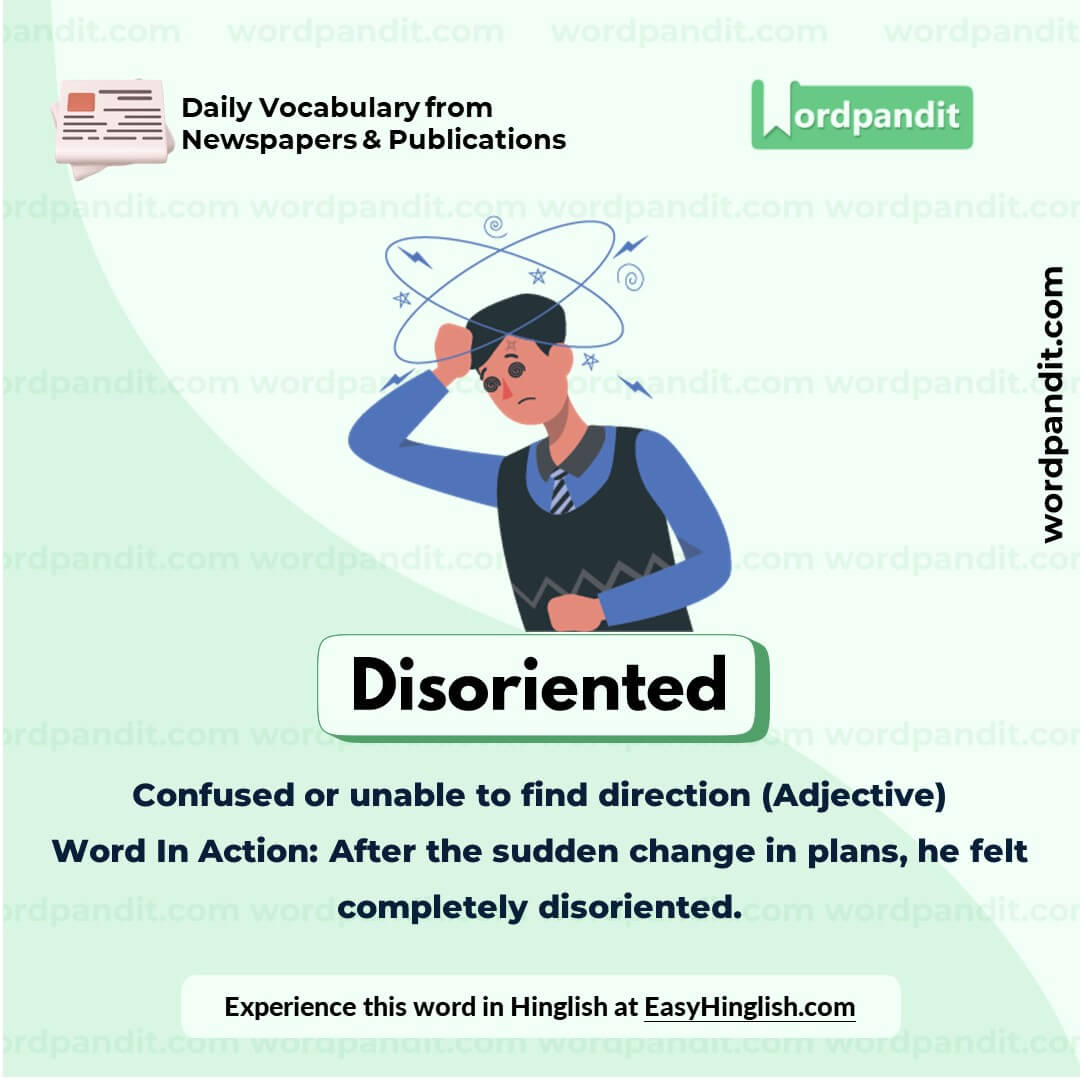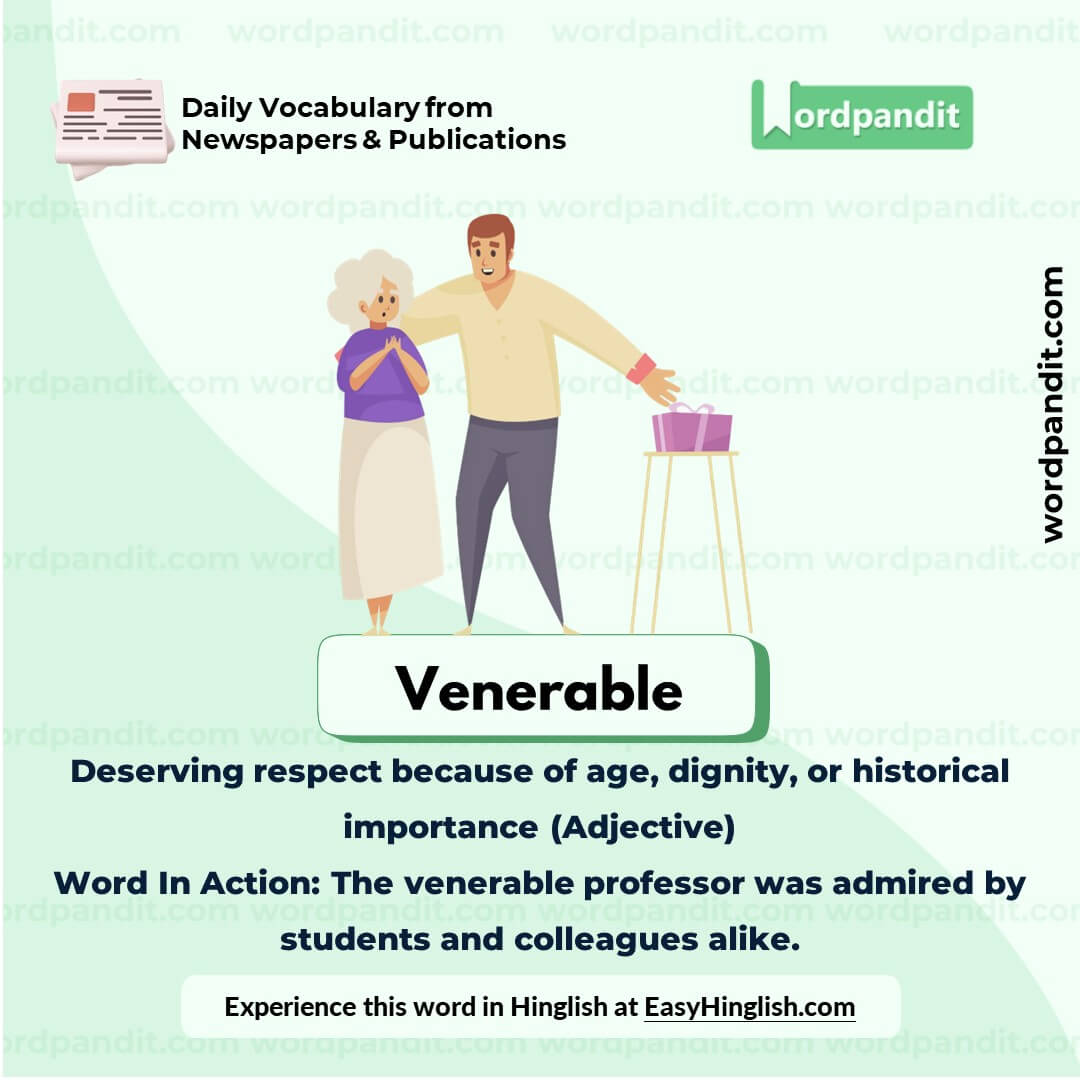Daily Vocabulary from International Newspapers and Publications
Expand Your Vocabulary with Wordpandit’s Global Vocabulary Hub
At Wordpandit, we are committed to helping you develop a truly global vocabulary by drawing from some of the most respected international publications. This section is designed to keep you ahead of the curve by introducing you to words that define global conversations and trends.
The Power of Global Sources
To help you think and communicate on a global scale, we curate vocabulary from renowned international sources, such as:
- The New York Times
- The Washington Post
- BBC
- The Guardian
- The Economist
- Scientific American
- Psychology Today
- And many more...
Stay Global, Stay Competitive
Our daily updates from international publications ensure you are consistently exposed to new words that reflect global news and developments, making sure your vocabulary is not only current but also globally relevant.
Enhance Your Global Perspective
Whether you’re preparing for international exams, aiming to excel in global business communication, or want to enhance your language skills for personal growth, Wordpandit offers the resources you need to thrive in a global context.
Effective Learning, Global Reach
Our learning methodology combines global examples, memory aids, and interactive activities, allowing you to internalize new words effectively and apply them in real-world scenarios.
Begin Your Global Vocabulary Journey Now!
Why Choose Wordpandit?
Practical Learning: Focus on words you'll actually encounter in real-world reading, enhancing your comprehension and communication skills.
Diverse Content: From current affairs to scientific breakthroughs, our varied sources expose you to vocabulary across multiple domains.
Effortless Integration: Make Wordpandit a part of your daily routine. Just a few minutes each day can significantly boost your lexicon over time.
Your Path to Vocabulary Mastery
- Visit our Daily Vocabulary section regularly
- Explore new words and their usage in context
- Practice incorporating these words into your own writing and speech
- Track your progress as your vocabulary expands
Start Your Journey Today
Embark on your vocabulary enhancement journey with Wordpandit. By consistently engaging with our daily posts, you'll build a robust vocabulary that serves you well in academic, professional, and personal contexts.
Remember, a word a day keeps linguistic limitations at bay. Make Wordpandit your daily companion in the quest for vocabulary excellence!
WORD-1: Renowned
Context:
"But in recent years the renowned troupe has taken fewer overseas trips from its home in Stratford-upon-Avon, England." - New York Times
Explanatory Paragraph:
The word "renowned" is used to describe someone or something that is widely known and highly respected for their achievements, qualities, or significance. It conveys a sense of fame and admiration earned through excellence or noteworthy accomplishments.
Meaning: Famous and highly respected (Adjective)
Pronunciation: ri-NOWND
Difficulty Level: ⭐⭐⭐ Intermediate
Etymology: Derived from Middle English "renoun," which comes from Old French "renomer," meaning to make known or famous, rooted in the Latin "nomen," meaning name.
Synonyms & Antonyms:
Synonyms: Famous, celebrated, distinguished, eminent, legendary
Antonyms: Unknown, obscure, insignificant, uncelebrated
Usage Examples:
- The renowned scientist was invited to speak at the international conference.
- The restaurant is renowned for its exquisite Italian cuisine.
- She attended a workshop conducted by a renowned yoga instructor.
- The town is renowned for its historical landmarks and cultural festivals.
Cultural Reference:
"Renowned" is often associated with the famous playwright William Shakespeare, whose works are globally celebrated and studied, making Stratford-upon-Avon, his birthplace, a renowned destination for literature enthusiasts.
Think About It:
What qualities or achievements do you think are necessary for someone or something to be considered renowned?
Quick Activity:
List three renowned individuals or organizations in your field of interest and explain why they are famous.
Memory Tip:
Think of the word "renowned" as "re + noun," indicating that someone's name (noun) is repeatedly (re) known and celebrated.
Real-World Application:
The term "renowned" is commonly used in articles, advertisements, and speeches to emphasize the credibility and fame of people, products, or institutions.
WORD-2: Diminishes
Context:
"Where some of the main importers of European work remain diminished and disoriented." - New York Times
Explanatory Paragraph:
The word "diminishes" refers to the act of making something smaller, less important, or less effective. It often implies a reduction in size, strength, value, or significance, either physically or metaphorically.
Meaning: To reduce in size, importance, or intensity (Verb)
Pronunciation: dih-MIN-ish-es
Difficulty Level: ⭐⭐ Basic
Etymology: Originating from the Old French "diminuer," which comes from Latin "diminuere," meaning to lessen or make smaller.
Synonyms & Antonyms:
Synonyms: Reduce, decrease, lessen, weaken, decline
Antonyms: Increase, enhance, amplify, enlarge, strengthen
Usage Examples:
- The passing years did not diminish her love for classical music.
- His critical comments diminished the confidence of his team.
- The new policy aims to diminish the environmental impact of industrial activities.
- The brightness of the stars diminished as the sun began to rise.
Cultural Reference:
The phrase "diminishing returns" is a well-known concept in economics, describing a point where increasing effort or investment results in progressively smaller benefits or gains.
Think About It:
Can you think of a situation where attempting to improve something actually diminishes its value?
Quick Activity:
Write a short paragraph describing how a specific action or event might diminish the effectiveness of a plan or project.
Memory Tip:
Remember "diminishes" by associating it with "dim," as in turning down the light, which represents making something less or smaller.
Real-World Application:
"Diminishes" is often used in discussions about policies, relationships, and processes to describe a reduction in value, effectiveness, or importance.
WORD-3: Disoriented
Context:
"Where some of the main importers of European work remain diminished and disoriented." - New York Times
Explanatory Paragraph:
The word "disoriented" describes a state of confusion or a lack of direction, whether physical, mental, or emotional. It often implies a sense of being lost or uncertain about one's surroundings or purpose.
Meaning: Confused or unable to find direction (Adjective)
Pronunciation: dis-OR-ee-en-ted
Difficulty Level: ⭐⭐ Basic
Etymology: Originates from the prefix "dis-" meaning "away" and "orient," from Latin "orientem," meaning "to align or find direction."
Synonyms & Antonyms:
Synonyms: Confused, bewildered, lost, perplexed, unsettled
Antonyms: Oriented, focused, aligned, aware, composed
Usage Examples:
- The traveler felt disoriented after waking up in a new country.
- The sudden changes in the schedule left the employees disoriented and unsure of their tasks.
- After the car accident, she appeared disoriented and struggled to recall what had happened.
- The hiker became disoriented when the fog rolled in, obscuring the trail.
Cultural Reference:
In literature and film, "disoriented" characters are often used to create tension or suspense, such as in psychological thrillers where protagonists struggle with amnesia or unfamiliar environments.
Think About It:
How does being disoriented affect decision-making, and what strategies can help regain clarity?
Quick Activity:
Think of a time when you felt disoriented. Write a few sentences describing how you regained your sense of direction or clarity.
Memory Tip:
Link "disoriented" to "dis" (not) + "oriented" (aligned), imagining someone spinning in circles and losing their direction.
Real-World Application:
The term "disoriented" is widely used to describe moments of confusion, especially in contexts like travel, unexpected events, or dramatic personal changes.
WORD-4: Accomplished
Context:
"Hall, who is now an accomplished stage and screen director with plenty of Shakespeare productions under his belt," - New York Times
Explanatory Paragraph:
The word "accomplished" is used to describe someone who is highly skilled or successful in a particular field. It signifies expertise and recognition earned through effort and achievements.
Meaning: Highly skilled or successful in a particular field (Adjective)
Pronunciation: uh-KOM-plisht
Difficulty Level: ⭐⭐ Basic
Etymology: Derived from the Middle English "accomplisshen," which comes from Old French "acomplir," meaning "to complete or fulfill," originating from the Latin "ad-" (to) and "complere" (fill up).
Synonyms & Antonyms:
Synonyms: Skilled, proficient, expert, talented, masterful
Antonyms: Inexperienced, unskilled, novice, amateur
Usage Examples:
- The accomplished pianist received a standing ovation for her performance.
- She is an accomplished writer, having published several award-winning novels.
- With years of practice, he became an accomplished chef, known for his creative dishes.
- The accomplished artist’s paintings are displayed in prestigious galleries worldwide.
Cultural Reference:
The term "accomplished" often appears in classical literature, such as in Jane Austen's "Pride and Prejudice," where being "accomplished" referred to mastery of various skills like music, drawing, and language.
Think About It:
What qualities or habits do you think contribute to someone becoming accomplished in their field?
Quick Activity:
Identify a skill you want to master and write down three steps you can take to become accomplished in it.
Memory Tip:
Think of "accomplished" as someone who has "accomplished" (completed) great things, highlighting their success.
Real-World Application:
"Accomplished" is widely used to describe professionals, artists, athletes, and others who have attained notable achievements or recognition in their field.
WORD-5: Venerable
Context:
"His timing was good: Harvey and Evans, trying to put their own stamp on the venerable R.S.C., were eager to find wider audiences for their work." - New York Times
Explanatory Paragraph:
The word "venerable" refers to someone or something that commands respect and admiration due to their age, wisdom, or historical importance. It is often used to describe institutions, traditions, or individuals that are deeply valued for their long-standing significance or integrity.
Meaning: Deserving respect because of age, dignity, or historical importance (Adjective)
Pronunciation: VEN-er-uh-bul
Difficulty Level: ⭐⭐⭐ Intermediate
Etymology: Derived from the Latin "venerabilis," meaning "worthy of reverence," from "venerari," which means "to worship or adore."
Synonyms & Antonyms:
Synonyms: Respected, esteemed, revered, august, honored
Antonyms: Disrespected, insignificant, dishonorable, unremarkable
Usage Examples:
- The venerable professor was celebrated for his decades of groundbreaking research.
- The town's venerable church, built over 500 years ago, attracts visitors from all over the world.
- The venerable tradition of lighting the lanterns during the festival has been passed down for generations.
- The venerable institution continues to uphold its legacy of excellence in education.
Cultural Reference:
The term "venerable" is often associated with the Buddhist title "Venerable" given to monks or nuns as a mark of respect for their spiritual discipline and wisdom.
Think About It:
Why do societies tend to honor and preserve venerable traditions, and how do these traditions shape cultural identity?
Quick Activity:
List three venerable institutions or individuals you know of and explain why they are considered venerable.
Memory Tip:
Think of "venerable" as connected to "venerate," meaning to deeply respect or honor something deserving of admiration.
Real-World Application:
"Venerable" is commonly used to describe long-standing organizations, traditions, or figures that have earned respect for their integrity, age, or contributions to society.


















